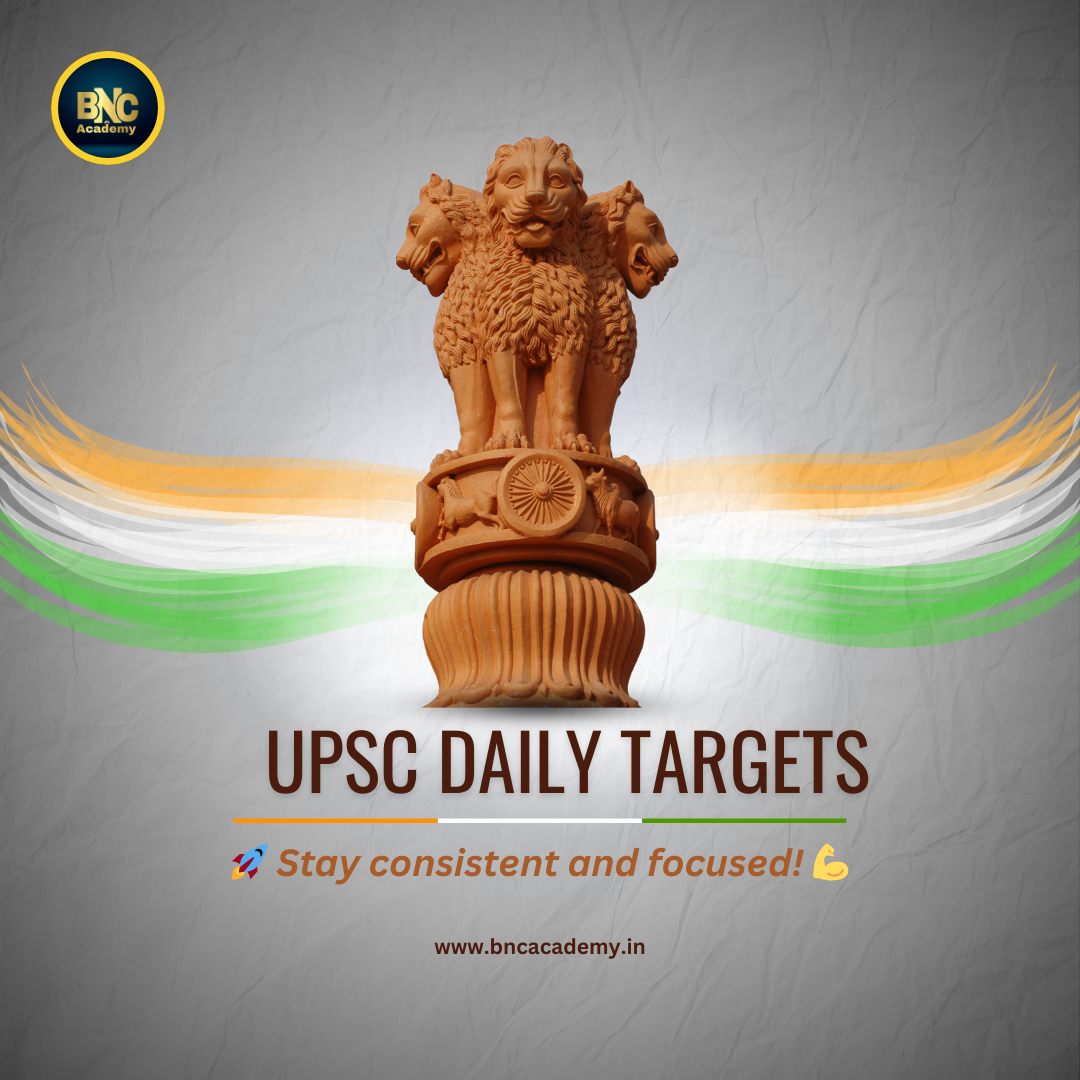
📌 Goal for the Day
Today, you will focus on Indian Parliament and State Legislatures—one of the most crucial topics in Indian Polity for UPSC Prelims. Your objective is to:
✅ Understand the structure, composition, and functions of Parliament.
✅ Learn about the law-making process and important parliamentary procedures.
✅ Compare Parliament (Union) with State Legislatures.
✅ Solve 50 MCQs on the topic for better retention.
🔹 Study Plan for Day 4 (6 Hours)
| Time Slot | Activity | Sources & Tips |
|---|---|---|
| 6:00 AM – 7:30 AM | Read about Indian Parliament (Lok Sabha, Rajya Sabha, President’s Role) | M. Laxmikanth (Chapter: Parliament) + NCERT Class 11 (Indian Constitution at Work) |
| 7:30 AM – 8:00 AM | Short Break | Relax & Revise Key Points |
| 8:00 AM – 9:30 AM | Learn about State Legislatures (Vidhan Sabha & Vidhan Parishad), Comparison with Parliament | M. Laxmikanth (Chapter: State Legislature) |
| Lunch & Rest | Take a break | Avoid information overload |
| 2:00 PM – 3:30 PM | Study Parliamentary Committees, Law-Making Process, Money Bill vs. Financial Bill | PRS India Website (https://prsindia.org/) for latest updates |
| 3:30 PM – 4:00 PM | Short Break | Walk, Refresh Mind |
| 4:00 PM – 5:30 PM | Solve 50 MCQs + Previous Year Questions on Parliament & State Legislature | Vision IAS Test Series / Insights IAS Daily Quizzes |
| Night Revision (30 mins) | Quick revision of notes & key points | Use One-page summary & Mind maps |
🔹 Concepts to Cover
1️⃣ Parliament of India
📌 Structure & Composition
✔️ Lok Sabha (House of the People) – Tenure, Members, Elections, Speaker, Powers.
✔️ Rajya Sabha (Council of States) – Tenure, Members, Representation of States & UTs.
✔️ President’s Role – Summoning, Dissolution, Assent to Bills.
📌 Legislative Process
✔️ Ordinary Bill – How a bill becomes a law.
✔️ Money Bill vs. Financial Bill – Special provisions in Article 110.
✔️ Joint Sitting of Parliament – When it is required.
📌 Parliamentary Committees
✔️ Standing Committees – Public Accounts Committee, Estimates Committee.
✔️ Ad Hoc Committees – JPC, Select Committees.
2️⃣ State Legislature (Vidhan Sabha & Vidhan Parishad)
📌 Structure & Composition
✔️ Unicameral & Bicameral Legislatures – Which states have Legislative Councils?
✔️ Tenure & Powers of Legislative Assembly vs. Legislative Council.
✔️ Governor’s Role in State Legislature.
📌 Law-Making Process at State Level
✔️ Comparison with Parliament – Similarities & Differences.
✔️ Money Bill at State Level – Role of Governor.
📌 Special Provisions for Certain States (Article 371).
🔹 Quick Revision Notes (Snapshot)
| Topic | Key Points |
|---|---|
| Lok Sabha | Directly elected, 5-year term, dissolvable |
| Rajya Sabha | Indirectly elected, 6-year term, permanent house |
| Money Bill | Introduced only in Lok Sabha, certified by Speaker |
| Joint Sitting | Only for Ordinary Bills, presided over by Speaker of Lok Sabha |
| Public Accounts Committee (PAC) | Examines government expenditure, headed by opposition leader |
| Vidhan Sabha | Elected, 5-year term, can be dissolved |
| Vidhan Parishad | Permanent House, 1/3 members retire every 2 years |
🔹 Test Yourself (MCQs Practice)
1️⃣ Who presides over the joint sitting of Parliament?
(a) President
(b) Vice President
(c) Speaker of Lok Sabha
(d) Prime Minister
✅ Answer: (c) Speaker of Lok Sabha
2️⃣ A Money Bill can be introduced in:
(a) Rajya Sabha
(b) Lok Sabha
(c) Either House
(d) Joint Sitting
✅ Answer: (b) Lok Sabha
3️⃣ Which of the following is NOT a Parliamentary Committee?
(a) Public Accounts Committee
(b) Joint Parliamentary Committee
(c) National Development Council
(d) Estimates Committee
✅ Answer: (c) National Development Council
💡 More MCQs: Practice daily quizzes on:
🔗 IAS Parliament MCQs
🔹 Must-Watch YouTube Lectures (Highly Recommended)
📺 Mastering MCQs with ‘Third Eye’ Technique: Unlock Success with Tathastu ICS | UPSC CSE PRELIMS 2025 – Click Here
📺 Rajya Sabha TV (RSTV Debates on Parliament Functioning) – Click Here
📺 Drishti IAS Polity Lecture ( English) – Click Here
🔹 Pro Tips to Successfully Complete Day 4
✔️ Follow the schedule strictly – Don’t skip any topic.
✔️ Write short notes – Highlight key points for revision.
✔️ Focus on PYQs & Mock Tests – Understand the UPSC pattern.
✔️ Avoid distractions – No social media during study hours.
✔️ Keep a revision slot before sleep – Go through your notes again.
🚀 By the end of Day 4, you will have:
✅ Understood the Parliament & State Legislatures completely.
✅ Completed 50+ MCQs practice.
✅ Made concise revision notes for last-minute revision.
💡 Next Steps (Day 5)
📌 Tomorrow, you will study Parliamentary System (Federalism, Centre-State Relations & Emergency Provisions).
📌 Prepare to build on today’s concepts with real-world examples from Indian governance.
✨ Stay motivated & keep moving forward! UPSC Prelims 2025 is within your reach! 🚀💪
🔹 Final Note: Success in UPSC demands discipline, patience, and a positive mindset. Stick to the strategy, revise consistently, and trust the process! 🚀
